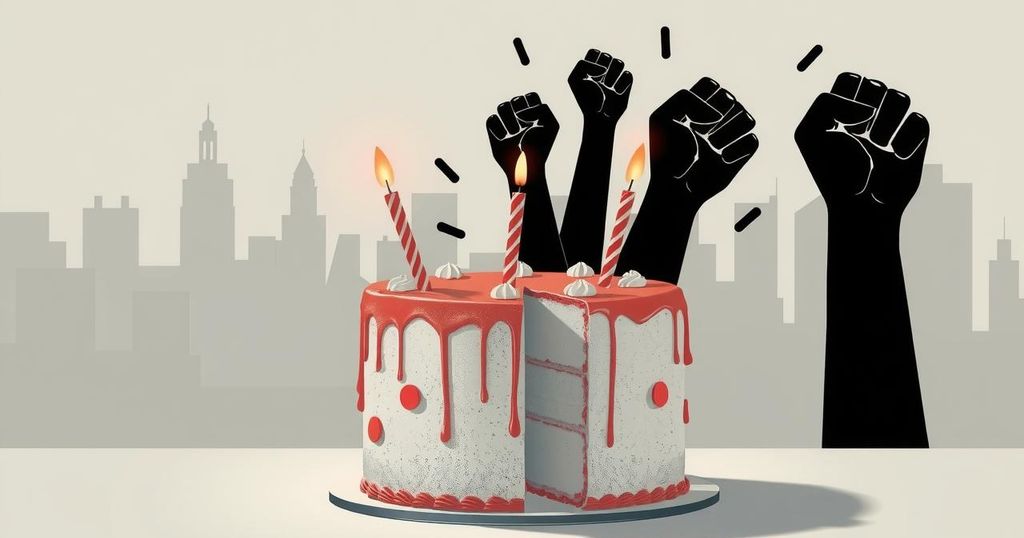As President Paul Biya turns 92, Cameroonians express divided sentiments on his leadership. Some demand a change upon his term’s end, while others support his continued presidency. Biya’s tenure, marked by political instability and health concerns, raises questions about the future of governance in Cameroon as elections approach.
On February 13, 2024, as President Paul Biya celebrates his 92nd birthday, many citizens of Cameroon have intensified their calls for a change in leadership. A faction of the populace urges his departure upon the expiration of his term later this year, while others advocate for his continued presidency. Biya, born in 1933 in Mvomeka’a, South Region, has been in power since 1982, marking 43 years as president and making him one of the longest-serving leaders globally.
Throughout his extensive political career, which began post-independence in 1960, Biya has held various positions, including Chargé de Mission and the Minister of National Education. He ultimately became Prime Minister in 1975 and rose to the presidency in 1982 after the resignation of Ahmadou Ahidjo. At 92, Biya ranks as Africa’s second-longest-serving leader, following Teodoro Obiang Nguema Mbasogo of Equatorial Guinea, who has been in office for 45 years.
Biya’s lengthy tenure has been marked by political turmoil, alleged democratic stagnation, and a deteriorating security situation. His extended absences from public engagements have raised concerns about his health; for instance, he was not seen for six weeks in late 2023, which fueled speculation regarding his well-being, although officials maintained he was on a private visit to Europe.
Many Cameroonians assert that Biya’s administration has led to more stagnation than advancement, pointing to economic fragility, rampant youth unemployment, and pervasive corruption as significant issues. Accusations of human rights violations and suppression of dissent have surfaced as well. During Biya’s recent absence, his minister of the interior prohibited local media from reporting on his health.
Under Biya’s leadership, he has been re-elected multiple times, with allegations of fraud surrounding several elections, including the contentious 2018 presidential election. Despite criticism, amendments to the constitution were made, which removed presidential term limits, allowing him to seek office indefinitely. Although Biya has not declared his intent to contest the upcoming elections in October, observers believe his recent political actions suggest a desire to maintain his grip on power.
Reactions to his 92nd birthday on social media have been mixed. Some users urged Biya to refrain from seeking another term, while others expressed support for his leadership. For instance, one Facebook user lamented, “Cameroon is rotten to the extent that maggots will soon start coming out of the country if Pa (Biya) is still in there as the Head of State.” Conversely, another user congratulated Biya, stating, “Happy birthday presi (president) We love you in Cameroon. We Cameroonians are impressed with the good work you have been doing all these years.”
President Paul Biya’s 92nd birthday has sparked significant discourse among Cameroonians, highlighting a division regarding his presidency. While some citizens advocate for his departure, others commend his accomplishments. His extended rule has prompted concerns about health, governance, and the country’s future, reflecting the complex political landscape in Cameroon as elections approach. As responses to his leadership grow, the nation remains at a crossroads regarding its political trajectory.
Original Source: www.icirnigeria.org






